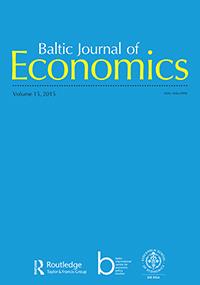Explaining and tackling the shadow economy in Estonia, Latvia and Lithuania: a tax morale approach
Explaining and tackling the shadow economy in Estonia, Latvia and Lithuania: a tax morale approach
Author(s): Colin C. Williams, Ioana Alexandra HorodnicSubject(s): Economy, National Economy
Published by: BICEPS/SSE Riga
Keywords: informal economy; undeclared work; tax morale; social contract; institutional analysis; Baltics;
Summary/Abstract: To explain the shadow economy in the Baltic states of Estonia, Lithuania and Latvia, this paper evaluates the relationship between the shadow economy and tax morale. Viewing tax morale as a measure of the symmetry between the codified laws and regulations of formal institutions (state morality) and the unwritten socially shared rules of informal institutions (civic morality), the proposition is that the lower the tax morale (i.e. the greater the asymmetry between state morality and civic morality), the greater is the likelihood to participate in the shadow economy. To evaluate this, a 2013 survey is reported involving 3036 face-to-face interviews in these 3 Baltic nations. Using logistic regression analysis, the finding is that the likelihood of participating in the shadow economy is greater, the lower is the tax morality of individuals, population groups and countries. In addition, the likelihood to participate is shadow economy is found to significantly vary by, for example, gender, employment status and country, people living in Latvia and Lithuania displaying significantly lower likelihood to engage in the shadow economy. The paper then explores the implications for theorizing and tackling the shadow economy.
Journal: Baltic Journal of Economics
- Issue Year: 15/2015
- Issue No: 2
- Page Range: 81-98
- Page Count: 18
- Language: English

